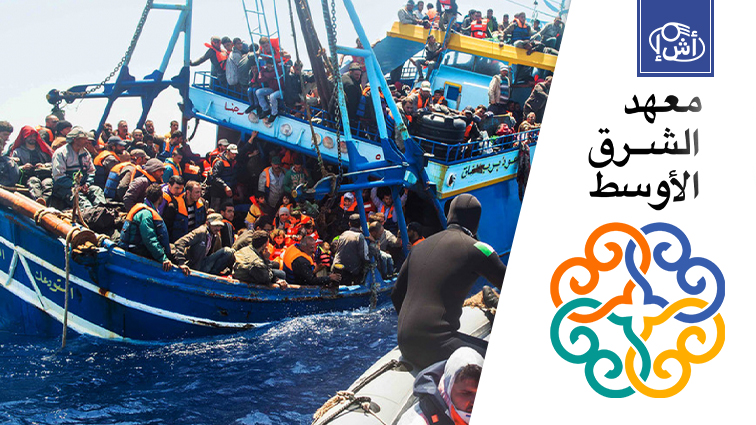In a recent report, the American Middle East Institute criticized European anti-immigration policies by using three countries, including Libya, to control borders, considering that they “enhance crime activity and violations committed by migrants,” which reflects the failure of Europe’s local partners to achieve their original goal of stopping refugee flows.
The researcher specializing in organized crime, Guillaume Soto Mayor, explained in the report that the funding provided by Brussels since 2016 to the Libyan, Nigerien, and Tunisian governments through the European Union Emergency Trust Fund causes harmful effects regarding immigration policy.
He confirmed Brussels’ funding of the security forces in these three countries, especially the Libyan and Tunisian coast guards, to prevent migrants from reaching European coasts.
The American Institute revealed that it had allocated an envelope worth 800 million euros to the Libyan Ministry of Interior and its operational arm, the Directorate for Combating Illegal Immigration, which runs 10 official detention centers.
The report shows that unofficial detention centers run by Libyan militias are often funded by European governments.
For ten years, imprisonment, forced labor, torture and extortion have been the hallmark of this criminal industry, some of its actors being interlocutors from the European Union and international organizations.
For Guillaume Soto Mayor, the outsourcing of border control, through violations committed by Europe’s local partners, including criminals, violated not only the values that the European Union stands for, but also the international rules and treaties to which member states have signed.
The international community spends billions of euros in development aid and military aid on behalf of North African and Sahel countries to help them contain migration flows and combat terrorism, but “the recent coups in Mali, Niger, and Burkina Faso,” and the continued violence in Libya, highlighted the failure of these efforts to achieve stability.
A country was judged to be stable when violence was limited to a level acceptable to the international community and local elites, allowing economic activity to restart, the last guarantee of national stability. This idea is based on the assumption that “if conflict promoters are engaged in business (whether legal or illegal) and have an interest in continuing their economic activities, they will avoid war.”
The researcher wondered how elections work in Africa, which are often held in Paris or Brussels. Thanks to the more or less overt and direct support of the international community, strongmen, often warlords and former criminals, have been able to gain positions of power at the local and national levels, in exchange for their commitment to the “stabilization” of key regions.
The Institute finds that this dynamic leads to the institutionalization of the economy of violence, because criminal behavior in matters of public administration and misappropriation of resources is tolerated and perpetuated, especially when this is the result of anti-immigration policies.
In 2023, 266,940 migrants and refugees arrived in southern European countries (Spain, Italy, Greece, Malta, and Cyprus), 97% of them by sea. This number represents an increase of 67% compared to the arrivals registered in 2022, a large portion of whom are from Tunisia. According to the Center for Mixed Migration, citing the International Organization for Migration, “1,417 deaths or disappearances occurred in the central Mediterranean in 2022, the majority of them off the Libyan and Tunisian coasts.”
Libyan-Belarusian talks to strengthen cultural and artistic ties
